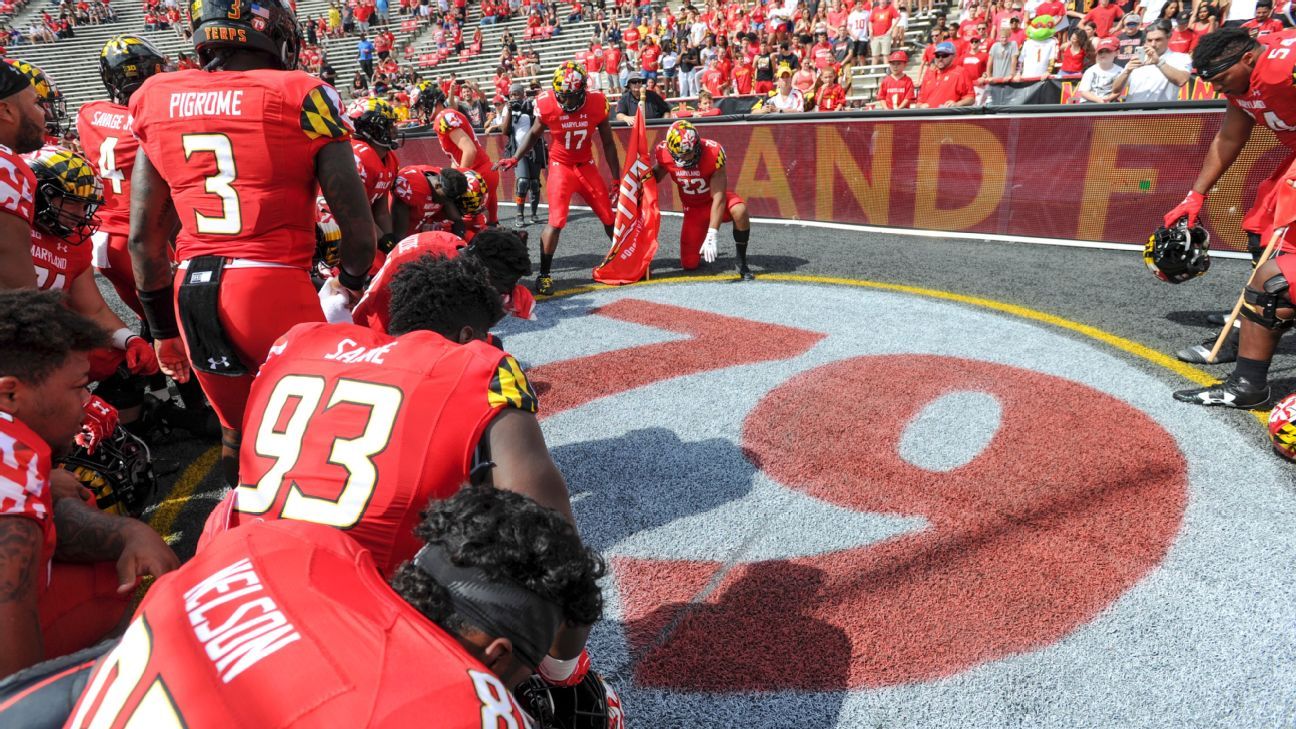The University of Maryland at College Park has been warned that its accreditation “may be in jeopardy,” and has until March 1, 2020, to prove to the Middle States Commission on Higher Education that it has a structure that “outlines roles, responsibilities, and accountability for decision-making.”
The Middle States Commission on Higher Education issued a release Friday that Maryland had “insufficient evidence that the institution is currently in compliance with Standard VII (Governance, Leadership, and Administration).”
It’s a procedural move that resulted from the scrutiny the university faced following the death last year of former Maryland offensive lineman Jordan McNair to heatstroke he suffered during a May 29 workout, but the accrediting body was not investigating how McNair was treated or the events that surrounded his death June 13.
Instead, the warning came as the result of a review into how the University System of Maryland Board of Regents might have overstepped its authority in trying to make personnel decisions regarding former coach DJ Durkin and university president Wallace D. Loh.
This past spring, MSCHE sent a review team led by Penn State University president Eric Barron to the College Park campus to gather information about the role of the USM regents in certain personnel decisions involving the football program and entire athletic department last October.
According to the team’s report, its review questioned several key actions by the regents: their decision to assume authority over an external investigation which examined the culture of the football program; the Oct. 30 press conference in which former regents chair James T. Brady announced the board’s recommendation to retain Durkin; and the subsequent announcement by Loh that he would retire — which was followed Oct. 31 by the dramatic, about-face decision to part ways with Durkin in spite of the board’s recommendation.
The board’s handling of the entire situation was met with “widespread complaints by both the academic leadership and the university senate, as well as the broader community,” according to the report.
Brady announced his retirement Nov. 1, 2018, and was replaced by Linda R. Gooden six days later. According to the report, Gooden said the decision to recommend the retention of Durkin was a mistake, but indicated the board had the right to make it.
The review stated a concern over “the degree to which the president was boxed in by a public announcement,” and also about “political influence.”
“The appearance of conflicts of interests and the potential for personal interests raise a number of concerns and allow various theories (real or not real) to take hold,” the report said.
“The lack of consistency in interviewee responses is of considerable concern to the review team, as is the Board interpretation of its role in personnel and athletic matters,” the report said. “Combined with the lack of direct involvement of the President in several of the matters described, these factors suggest a lack of clear adherence to Standard VII.”
In a statement issued Friday, Maryland said “progress towards full compliance is already underway.”
“Under the new Board chair, the university is encouraged by USM changes and increased collaboration,” university spokeswoman Katie Lawson said in an email to ESPN on Sunday. “The renewed commitment to openness and communication will ensure that the necessary actions are taken to secure autonomy and full compliance.”
On Sunday evening, Loh issued a letter to the University of Maryland community, writing, “with the proffered and welcomed guidance by MSCHE — we expect to be in compliance with Standard VII by March 1, 2020, when UMD’s monitoring report to MSCHE is due.”
